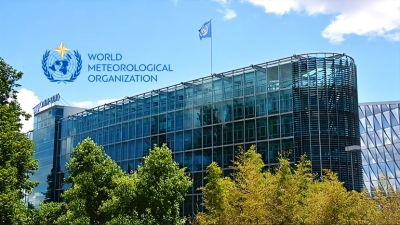Climate change crisis getting worse, 2024 will become the hottest on record
Mai El-Kafoury

Over the past decades, the United Nations and a number of international organizations have been warning of the threat of climate change. Many conferences have been held warning of this frightening ghost from the Earth Summit of Rio de Janeiro, Brazil, in 1992, Kyoto protocol and Paris Conventions. As a result of the COP 27 conference, held in Sharm el-Sheikh in 2022, this has not been feasible enough to face this disaster, especially in the light of the major industrialized countries' failure to abide by the warnings, in their pursuit of high levels of economic growth.
The climate change crisis is getting worse even more sharply, as we have seen over the past year, with planet Earth in 2023 registering the highest average temperature ever, surpassing the previous 2016 record by a large margin, the first time the planet's average temperature has approached 1.5 degrees Celsius, which is a risk indicator as proclaimed in the 2015 Paris Agreement.
The worst is yet to come, with some scientists expecting 2024 to be the first year in human history to break the temperature average of the planet the limit of 1.5 degrees Celsius, which is crucial, since it is a stimulating for many climate shifts that will directly contribute to uncontrollable warming.
It should be noted that this is despite the fact that the temperature average in the world may decrease after the disappearance of this year's current El Niño phenomenon, which may last until April 2024, a phase of heat emission in the natural climate cycle that is constantly occurring in the tropical Pacific Ocean.
According to an analysis by biodiversity scientist Alex Piggott at the University of California; it was found that even if current efforts could reduce global warming at 1.5 °C, there were still 15% of organisms at risk of suddenly losing at least a third of their current geographical range, a number that could double to 30% if the average temperature reached 2.5 °C.
If the heat exceeds 1.5 degrees Celsius, the risk of severe heatwaves exceeding the ability of humans' bodies to recover from them will rise, and several geographical regions such as the Arabian Gulf, South Asia and northern China may experience a significant rise in humidity, which could cause serious health risks.
Also serious consequences are the increased risk of extinction of certain organisms, devastating storms, and collapses of ice sheets.
According to scientists, urgent actions to address these risks is to eliminate global greenhouse gas emissions that cause global warming, especially resulting from coal, oil and gas burning processes, which account for 80% of global energy consumption.













